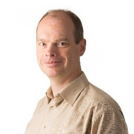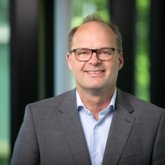The integrated devices & systems (IDS) and power electronics (PE) group at the University of Twente have a vacancy for a shared PhD student on the research topic “physics of tunnelling devices for ultralow-power electronics” within the project TunnelVision. This project aims to investigate the feasibility of novel ultralow-power electronics based on quantum-mechanical tunnelling processes in advanced CMOS, which has a strong potential for Internet-of-Things devices and edge-artificial intelligence applications. This project is in strong collaboration with and led by the integrated-circuit design (ICD) group.
You will study the quantum-mechanical tunnelling processes experimentally and address the physics, device modelling/simulation aspects of new tunnelling devices. By using dedicated electrical dc and RF measurement equipment within our measurement & test centre, you will develop and carefully analyse specially designed test structures and new tunnelling devices realised in advanced CMOS. Based on a thorough literature review and the outcome of this research, the main challenge will be to (co-)develop physics-based models for circuit simulations. The characterization and modelling work will be in strong collaboration with a second Ph.D. student within the same project, who develops ultralow-power circuit blocks based on tunnelling.
The project is financed by the Netherlands Organisation for Scientific Research (NWO) in the domain Applied and Engineering Sciences (TTW). You will carry out the research at the Faculty of Electrical Engineering, Mathematics and Computer Science (EEMCS), University of Twente in Enschede, The Netherlands, and several experienced supervisors (Dr. Ray Hueting, PE group and Prof. Jurriaan Schmitz, IDS group) will give you daily guidance with support from a senior engineer. Collaboration is an important aspect of the PhD position. You will extensively collaborate with a PhD student and experienced scientific staff members of the ICD group, also part of the Faculty of EEMCS. In addition, and you will work in close collaboration with a wide span of companies such as NXP Semiconductors.
Various teaching activities in your field of expertise will take 10%-20% of your time.
Information and application
Are you interested in this position? Please send your application via the 'Apply now' button below before January 5, 2026, and include:
- A Curriculum Vitae, including a list of all courses attended and grades obtained, and, if applicable, a list of publications and references.
- A cover letter (maximum 2 pages A4), emphasising your specific interest, qualifications, and motivations to apply for this position.
Screening is part of the selection process.
About the department
The two research groups, Integrated Devices and Systems and Power Electronics, conduct research into semiconductor-based electronic components in close collaboration with multinational semiconductor companies and local industry. Both groups are teams of 25-35 people from many different nationalities; the scientific communication is in English. The two groups carry out joint projects on a regular basis. Find out more about the PE group and the IDS group via these links.
About the organisation
The faculty of Electrical Engineering, Mathematics and Computer Science (EEMCS) uses mathematics, electronics and computer technology to contribute to the development of Information and Communication Technology (ICT). With ICT present in almost every device and product we use nowadays, we embrace our role as contributors to a broad range of societal activities and as pioneers of tomorrow's digital society. As part of a tech university that aims to shape society, individuals and connections, our faculty works together intensively with industrial partners and researchers in the Netherlands and abroad, and conducts extensive research for external commissioning parties and funders. Our research has a high profile both in the Netherlands and internationally. It has been accommodated in three multidisciplinary UT research institutes: Mesa+ Institute, TechMed Centre and Digital Society Institute.




